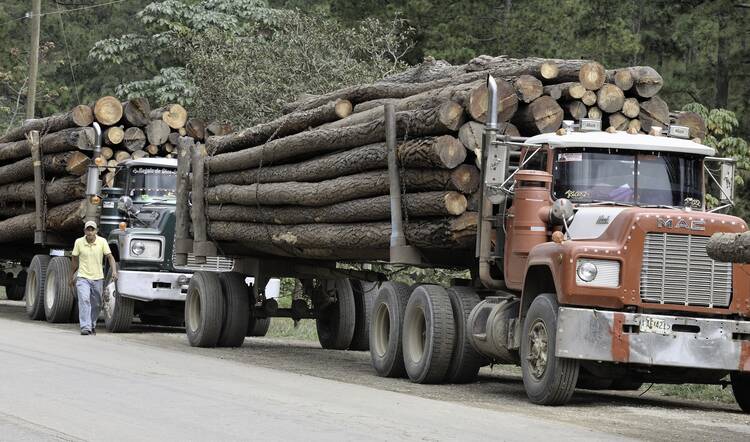In comments in a university hall in Molise, an agricultural and industrial region in southern Italy, on July 5, Pope Francis offered more evidence that he intends a serious challenge Pope Benedict's standing as the "green pope." Speaking before a group of students, struggling farmers and laid-off workers (Reuter's description) who had assembled to hear Pope Francis at the University of Molise, the pope said the earth required safe guarding so that it "may bear fruit without being 'exploited.'
"This is one of the greatest challenges of our time," he said, "changing to a form of development which seeks to respect creation. I see America — my homeland, too: many forests, stripped, which become land that cannot be cultivated, which cannot give life," Pope Francis said, after his fashion, off-script and responding to the concerns and comments of people who had spoken before him. "This is our sin: exploiting the land and not allowing it to give us what it has within it, with our help through cultivation."
The pope's brief comments in Molise (he mostly devoted himself there to endorsing more economic opportunity for workers and imploring a better work/life balance in Western economies) were enough to prompt Tara Isabella Burton, writing in the Atlantic (h/t MSW), to declare Francis an environmental radical:
"By characterizing the destruction of the environment not merely as a sin, but rather as our sin—the major sin, he suggests, of modern times—the pope is doing more than condemning public inaction on environmental issues. ... Francis is using his pulpit to actively shape public discourse about the nature of creation .... In so doing, he is implicitly endorsing a strikingly positive vision of the individual’s relationship with the created world, and with it a profoundly optimistic vision of what it means to be human—and incarnate—overall, opening the door for a radical shift in emphasis, though not doctrine, when it comes to the Catholic Church’s view of mankind."
Some will surely argue that Francis has done nothing more—so far, we await his promised encyclical on the environment—than offer better packaging to Benedict's previous missives on the environment. But Michael Bayer, a twitter correspondent, points out that a quick scan of Benedict's major sermon on stewardship "If You Want to Cultivate Peace, Protect Creation," did not turn up any references to structural sin, the "our sin," Burton notes. Both Benedict and Francis have linked their concern for the vulnerable state of the environment to the inelegance of the contemporary "throwaway" economic order, the unwillingness of those at the helm of Western economies to integrate Christian morality and sometimes simple humanity into economic systems.
In 2008 the Vatican included polluting the environment as one among a new group of "social sins." Perhaps the elevation of ecological degredation to the level of structural sinfulness, one we may indirectly participate in rather than actively engage in will be part of Francis' contribution to the church's evolving teaching on the environment. How might we respond?
"Our God is a God of surprises," Pope Francis told the folks at Molise. "He is like this, our Father... a God who breaks molds. Unless we have the courage to break molds, we will never go forward because our God pushes us to do this: to be creative about the future."








